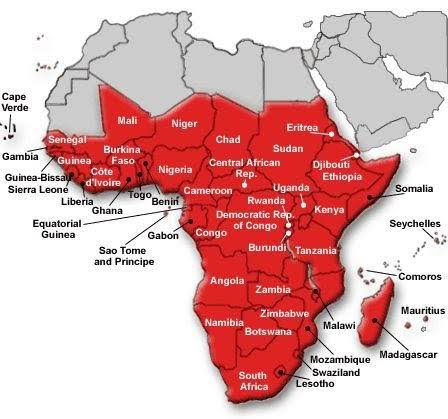By Zion Rufus
Weighing on economic activity by depressing both business investments and household consumptions, the war in Ukraine is exacerbating already high inflation according to a World Bank report.
Countries in SSA countries include: Nigeria, Kenya, Ghana, South Africa, Mozambique, Ethiopia, Malawi, Tanzania, and Rwanda amongst others.
As of July 2022, 29 of 33 countries in SSA with available information had inflation rates over 5% while 17 countries had double-digit inflation and according to the World Bank’s latest Africa’s Pulse, a biannual analysis of the near-term regional macroeconomic outlook, economic growth in Sub-Saharan Africa (SSA) is set to decelerate from 4.1% in 2021 to 3.3% in 2022.
“Global headwinds are slowing Africa’s economic growth as countries continue to contend with rising inflation, hindering progress on poverty reduction,”the report revealed. “The risk of stagflation comes at a time when high interest rates and debt are forcing African governments to make difficult choices as they try to protect people’s jobs, purchasing power and development gains.”
Andrew Dabalen, World Bank Chief Economist for Africa also said: “These trends compromise poverty reduction efforts that were already set back by the impact of the COVID-19 pandemic. What is most worrisome is the impact of high food prices on people struggling to feed their families, threatening long-term human development. This calls for urgent action from policymakers to restore macro-economic stability and support the poorest households while reorienting their food and agriculture spending to achieve future resilience.”
Debt is projected to stay elevated at 58.6% of GDP in 2022 in SSA. African governments spent 16.5% of their revenues servicing external debt in 2021, up from less than 5% in 2010. Eight out of 38 IDA-eligible countries in the region are in debt distress, and 14 are at high risk of joining them. At the same time, high commercial borrowing costs make it difficult for countries to borrow on national and international markets, while tightening global financial conditions are weakening currencies and increasing African countries’ external borrowing costs.
This challenging environment makes it essential to improve the efficiency of existing resources and to optimize taxes. In the agriculture and food sector, for example, governments have the opportunity to protect human capital and climate-proof food production by re-orienting their public spending away from poorly targeted subsidies toward nutrition-sensitive social protection programs, irrigation works, and research and development known to have high returns.






Comment
No comments found.